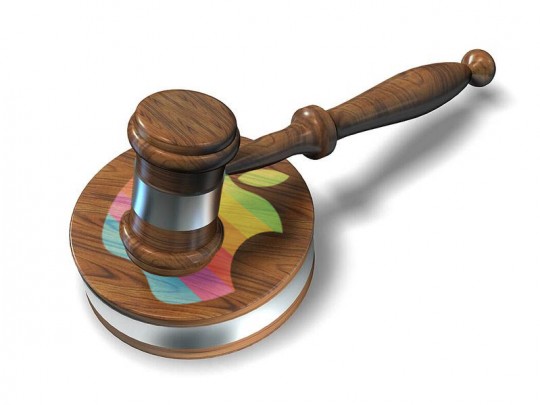The changes proposed by the U.S. Department of Justice and 33 U.S. states and territories are designed to stop Apple from committing further antitrust violations after U.S. District Judge Denise Cote said on July 10 Apple had a “central role” in a conspiracy with five major publishers to raise e-book prices. But the proposed changes extend beyond e-books, potentially limiting Apple’s ability to negotiate for such content as movies, music and TV shows, and increasing regulatory oversight of other business areas such as the company’ App Store.
In a court filing, Apple called the proposed injunction a “draconian and punitive intrusion” into its business that would hurt consumers and competition, and was “wildly out of proportion” to the harm it was meant to address.
“The resulting cost of this relief – not only in dollars but also lost opportunities for American businesses and consumers – would be vast,” it said.
Federal and state regulators disagreed. “Under the department’s proposed order, Apple’s illegal conduct will cease, and Apple and its senior executives will be prevented from conspiring to thwart competition,” said Bill Baer, head of the Justice Department’s antitrust division. Despite Apple’s protests, analysts have said the bigger issue for the Cupertino, California-based company in this case might be damage to its reputation, not financial harm.
Amazon.com Inc commands about 65 percent of the U.S. e-books market, while Apple’s share has been estimated in the single digits.
LIMITS ON DEAL-MAKING
The governments’ plan, which needs court approval, would require that Apple end its contracts with the five publishers and be banned for five years from entering contracts that would effectively raise prices of e-books sold by rivals. The publishers are Lagardere SCA’s Hachette Book Group Inc, News Corp’s HarperCollins Publishers LLC, Pearson Plc’s Penguin Group (USA) Inc, CBS Corp’s Simon & Schuster Inc and Verlagsgruppe Georg von Holtzbrinck GmbH’s Macmillan. All settled with U.S. regulators.
Apple would also be unable to cut deals with providers of movies, music and TV programs for its iPad tablets and iPhones that would likely increase the prices at which rivals might sell such content. Officials also want to make it easier for consumers to compare e-book prices by requiring Apple for two years to let Amazon, Barnes & Noble Inc and other rivals provide links to their own stores within their iPad and iPhone apps.
“Why isn’t the DOJ forcing Amazon to play fairly? This is the question the publishing industry wants answered,” said Mark Coker, founder of Smashwords, an e-book publisher and distributor that works with Apple, Barnes & Noble and other companies. “Apple brought much-needed competition to the e-book market and now the government is trying to undermine them.” Albert Greco, a book-industry expert at Fordham University’s business school, said the proposal “does not address the long term issue of book pricing in the United States.”
The post Apple E-Book Case Under Strict Observation by U.S appeared first on YouFrisky.




















